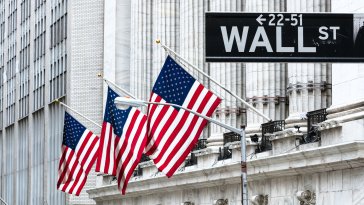
Emerging markets Asia: Picking a side
- 19 September 2024 (5 min read)
KEY POINTS
A friend of the enemy
Emerging markets (EM) Asia will be closely watching the US presidential election. While we see few direct impacts from a Kamala Harris win, a Donald Trump victory would likely pose several challenges for the region.
EM Asia broadly benefited from the 2018-2019 US-China trade war, not only enjoying a more competitive position vis-à-vis Chinese exporters to the US but also attracting foreign investment from firms engaging in “China + 1” strategies and investment from Chinese firms seeking to diversify their supply chains (and circumvent US tariffs).
The region’s favourable position can be attributed to its success in avoiding picking a side. However, if Trump wins, the risk of an escalation in the US-China trade war could see key markets in the region find it difficult to continue to reside in this sweet spot. Trump would be unlikely to tolerate what he may deem an increasingly one-sided relationship with markets that have seen trade surpluses with the US widen and benefited from US regional security backing but simultaneously have built closer economic ties with China. EM Asia could therefore face a tougher trading environment with the US and a reassessment of existing security arrangements if Trump is re-elected.
The region now has a much wider trade surplus with the US than in Trump’s first term (Exhibit 6). While some of EM Asia’s gains have come at the expense of China, this also reflects a rewiring of Chinese supply chains to circumvent US protectionist policies, with South-East (SE) Asian nations being notable conduits. This has already played out in solar panels –
a decade or so after the 2012 US tariff hike on Chinese solar panels, SE Asia now accounts for around 80% of all US solar panel imports, much of which is linked to Chinese firms. In August 2023, the US Department of Commerce (DoC) announced the final determination of a circumvention inquiry that found Chinese producers were shipping solar products through these markets for minor processing to avoid paying anti-dumping and countervailing duties.
China’s investment in SE Asia manufacturing facilities has also picked up in recent years. Its total outward direct investment position in Vietnam, Thailand and Malaysia combined rose from US$16bn in 2018 to US$37bn in 2022, according to International Monetary Fund data. More recently, fDi Intelligence reported that in 2023 China pledged US$26.4bn in greenfield projects in the Association of Southeast Asian Nations, up from an annual average of US$7.7bn in 2014-2022. This makes it challenging for the DoC to identify and contain Chinese efforts to circumvent trade tariffs. Tougher anti-China policy could include blanket tariffs on nations deemed to be benefiting from close ties with China (particularly those enabling China’s tariff evasion) – and EM Asia will be a prime target. Complicating further, EM Asia will also need to be wary of cheap Chinese imports; Indonesia has already taken action, imposing tariffs of up to 200% on some Chinese goods.
In addition to hiking tariffs on so-called unfair trade covering China-linked imports, there is a broader risk any future trade negotiations or disputes with a new Trump administration could include threats to withdraw US security commitments, or demand greater contributions towards existing arrangements.
In particular, Korea and Taiwan have also seen trade surpluses with the US widen and these could attract a protectionist response, given Taiwan’s dominant position in semiconductor manufacturing and Korea’s rising vehicle exports to the US. A harbinger of a more complicated relationship with the US was Trump’s comments in July that Taiwan should pay the US for protection from China, while also bemoaning Taiwan’s dominance in global semiconductor trade. Tellingly, in his first term, Trump accused South Korea of free riding on US security support and renegotiated the Korea-US Free Trade Agreement (KORUS) accordingly.
Disclaimer
The information on this website is intended for investors domiciled in Switzerland.
AXA Investment Managers Switzerland Ltd (AXA IM) is not liable for unauthorised use of the website.
This website is for advertising and informational purpose only. The published information and expression of opinions are provided for personal use only. The information, data, figures, opinions, statements, analyses, forecasts, simulations, concepts and other data provided by AXA IM in this document are based on our knowledge and experience at the time of preparation and are subject to change without notice.
AXA IM excludes any warranty (explicit or implicit) for the accuracy, completeness and up-to-dateness of the published information and expressions of opinion. In particular, AXA IM is not obliged to remove information that is no longer up to date or to expressly mark it a such. To the extent that the data contained in this document originates from third parties, AXA IM is not responsible for the accuracy, completeness, up-to-dateness and appropriateness of such data, even if only such data is used that is deemed to be reliable.
The information on the website of AXA IM does not constitute a decision aid for economic, legal, tax or other advisory questions, nor may investment or other decisions be made solely on the basis of this information. Before any investment decision is made, detailed advice should be obtained that is geared to the client's situation.
Past performance or returns are neither a guarantee nor an indicator of the future performance or investment returns. The value and return on an investment is not guaranteed. It can rise and fall and investors may even incur a total loss.
AXA Investment Managers Switzerland Ltd.


